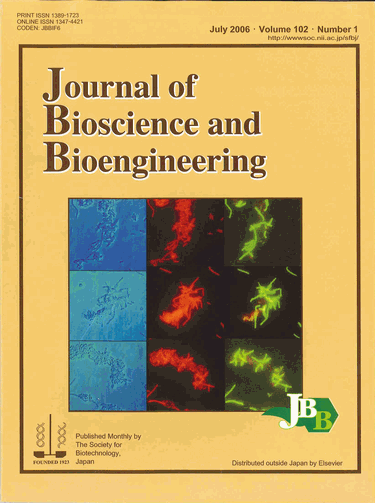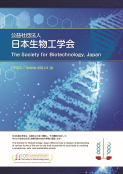Journal of Bioscience and Bioengineering Vol. 102, No. 1 (2006)
Vol. 102, July 2006
Novel probe useful for detection of Bacillus coagulans.
To produce L-lactic acid necessary for the production of poly-L-lactic acid plastic, kitchen refuse was inoculated with Bacillus coagulans under nonsterilized openculture conditions as a model system. At the temperature above around 50°C, the culture was shown to accumulate only L-lactic acid efficiently. The microflora in this type of culture is often disturbed by contaminated microorgansisms, and analysis of the microflora is, therefore, indispensably required to maintain the productivity of the acid.
The feasibility of 16S rRNA-targeted oligonucleotide probe for B. coagulans, Bcoa191, was examined by whole-cell fluorescence in situ hybridization (FISH) method. When the probe was applied to the culture of B. coagulans mixed with Lactobacillus plantarum (top panel), Lactobacillus rhamnosus (middle panel), and with Escherichia coli (bottom panel), the probe Bcoa191 specifically recognized B. coagulans, and differentiated the species from other bacteria (right column), although, as a matter of course, phase contrast microscopic (left column) and fluoro-microscopic observations using rhodamine-EUB338 (middle column) did not.
Related article: Sakai, K. and Ezaki, Y., “Open L-lactic acid fermentation of food refuse using thermophilic Bacillus coagulans and fluorescence in situ hybridization analysis of microflora“, J. Biosci. Bioeng., vol. 101, 457-463 (2006).
⇒JBBアーカイブ:Vol.107 (2009) ~最新号
⇒JBBアーカイブ:Vol. 93(2002)~Vol. 106(2008)



.gif)